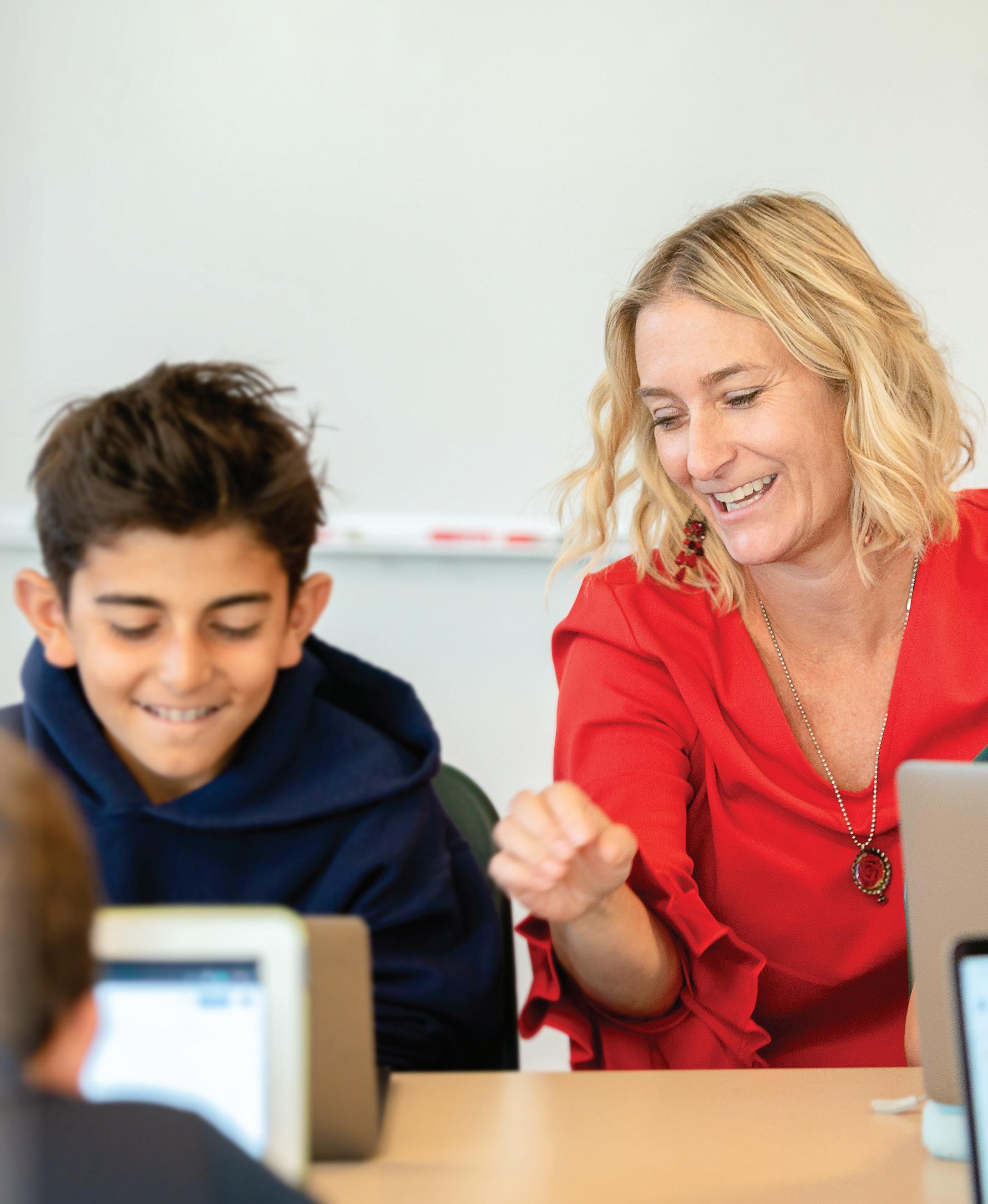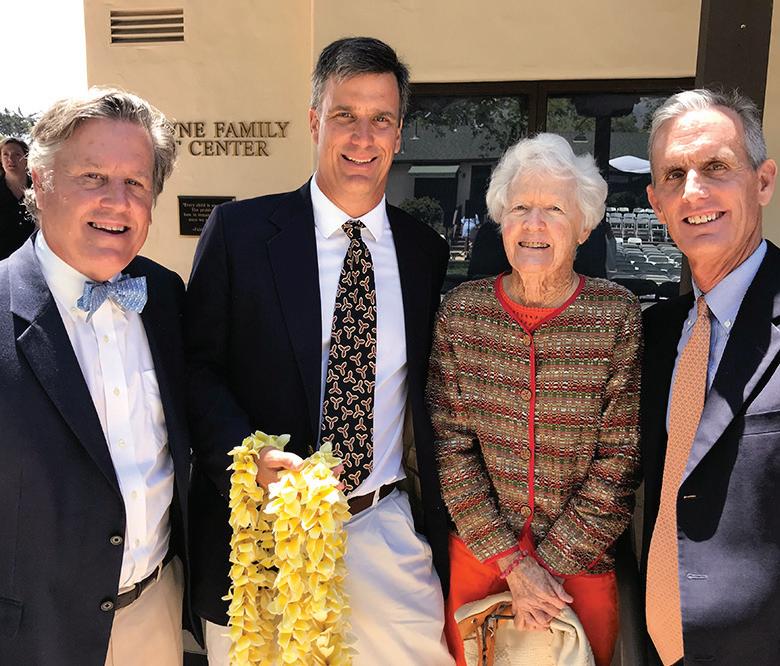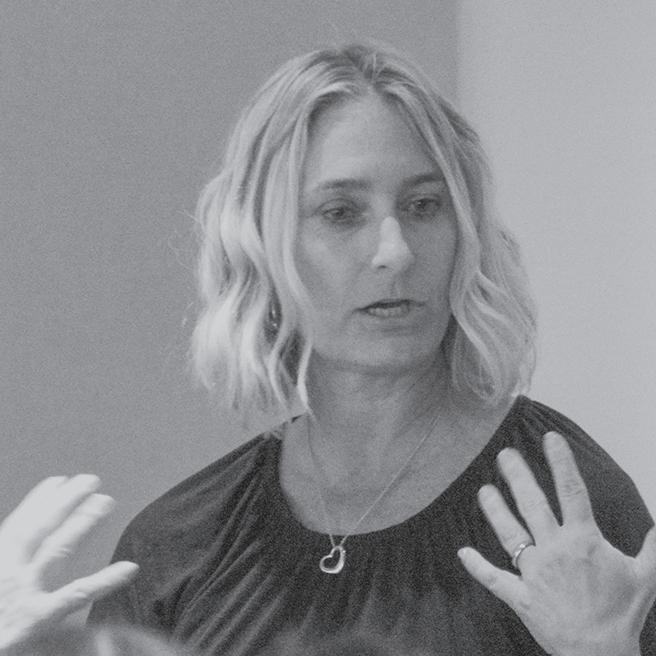
3 minute read
Helping Students Find Their Voice
STUDENTS FIND THEIR
Ashley Laird, Middle School English Teacher and Department Chair
Few professionals can say that they have worked for the same company their entire career. Ashley Laird has not only worked at Chandler School for 25 years, but she has also led as department chair, dean of girls, coach, and yearbook representative. She has left a lasting impact on generations of students.
When Ashley Laird joined Chandler, the quality that stood out the most was that it was deeply rooted in tradition. In her time at Chandler, she has seen not only the student body become more diverse, but also pedagogy becoming more student-centered from being testcentric. However, one thing that has remained consistent is the faculty's deep commitment toward professional excellence. This tradition of excellence continues with the same dedication that Thomas Chandler started 70 years ago.
Ashley teaches with the same dedication. Her annual poetry reading program is a testament to her commitment to allowing her student’s voices to be heard. She excitedly talks about the English Expo, which she started four years ago, in which students showcase their writing at the end of the year and recite their essays about their beliefs. Guiding her students to find their voice is just as important to Ashley as teaching reading and writing. She appreciates the creative freedom she gets at Chandler to design curriculum that makes students think about the burning issues of our times and allows them to learn to express themselves in various forms. She is always excited to see students making cross-connections and meaningful conclusions on topics as deep as race, identity and prejudice.
For years now, she has conducted a diversity panel after students read The Outsiders by S.E. Hinton and a nonfiction short story unit on themes of code-switching, microaggressions, stereotypes and racism. It never ceases to amaze her seeing how much learning happens when students listen and relate to guest speakers who have real-life experiences dealing with critical and timely issues like oppression, persecution and stereotypes. While the panel features people from different racial backgrounds or sexual identities, students and adults in attendance are often moved to tears, relating with the participants and even reaching out after the event.
She puts a lot of thought into selecting the literature she teaches. She says, "some books, like Animal Farm, are so timeless that I continue teaching them even after a decade." She brings fresh energy and excitement to teaching old classics and new literature to middle
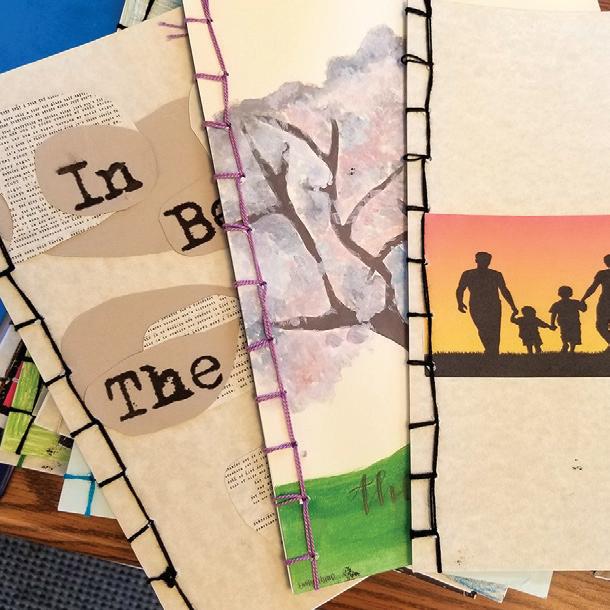
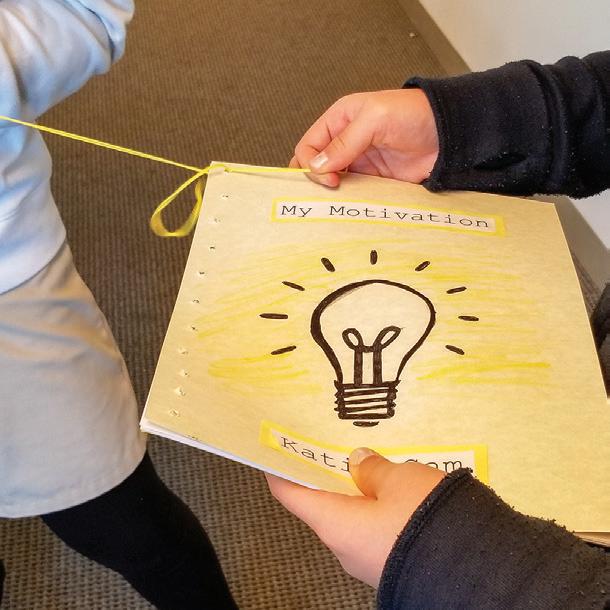
schoolers. It is also one of her goals to help students see themselves, their ideas, and their thoughts reflected in the curriculum.
When asked if she was inspired by one of her teachers growing up, she says, "Ms. Gilchrist, my English teacher in high school once took my entire class on a field trip around Pasadena’s neighborhoods.” When Ms. Gilchrist heard a student calling an area in Pasadena "ghetto," during the class discussion of the novel Our Town, she guided the students in a better understanding of systematic racism and the racial division of Pasadena. This type of lesson in the classroom is what Ashley creates through her English classes’ study of literature.
She credits her childhood teacher for using English as a medium to discuss the world and, to this day, Ashley never fails to pass that on to her students. Ashley believes that the voice students find during middle school is a sacred tradition. Much the same way that Ashley credits her high school English teacher for fostering that deeper understanding, many alumni express their gratitude to Ashley for giving them that spark for the joy of learning that has changed their lives.
